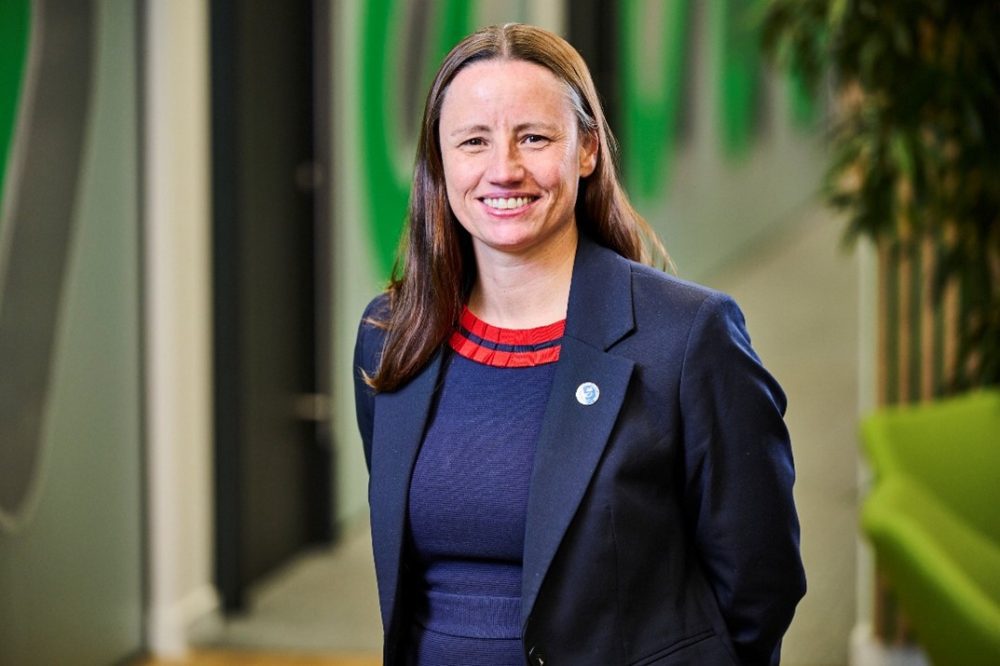
Views from the CFO: How Fair Tax provides crucial support for society
Latest NewsViews from the CFO: How Fair Tax provides crucial support for society
Published: June 11, 2025
Penny Hogan, Chief Financial Officer at Unity Trust Bank and Non-Executive Director at the Fair Tax Foundation:
When businesses pay their fair share of tax, their impact extends far beyond the balance sheet. These funds go directly to the schools, hospitals and community services that are at the heart of every community.
I believe that this is why organisations should be empowered to pay the right amount of corporation tax, at the right time, and in the right place. As such, I am incredibly proud to have recently been appointed to the Fair Tax Foundation’s board as a non-executive director. This is a voluntary role that aligns with mine and Unity’s values and will allow me to help more businesses understand the value of fair and responsible tax conduct.
Taking place from 8 – 15 June, Fair Tax Week is the perfect opportunity to explore why paying a fair share of tax is so important.
The shift towards transparency
In 2014, Unity became the first UK bank to receive the Fair Tax Mark, a globally recognised hallmark of responsible tax conduct, which has become widely regarded as the gold standard for business.
Since joining the bank, I have proudly spearheaded its ongoing support for the accreditation and have been passionate about promoting the importance of transparent financial practices among both internal and external stakeholders.
Why fair tax matters
In 2023, we sponsored a major report in partnership with the Fair Tax Foundation, which collated seven years of polling data and provided important insights into UK public opinion on trust, tax disclosures and procurement. The report found consistently high support for responsible tax conduct, with 62% saying they would “trust a business with the Fair Tax Mark more than one without it”.
For many organisations, it’s easy to overlook the “G” in ESG, but paying fair tax is becoming a critical part of corporate governance. Beyond compliance, it’s clear that many people perceive this as an ethical responsibility.
As customers become more conscious about where they spend their money, investors are paying greater attention to business practices too. Trusted accreditations like the Fair Tax Mark demonstrate financial transparency, and show that an organisation is properly managing tax-related risks.
Community impact
At Unity, our customers know that their deposits are being invested responsibly – and paying a fair amount of tax is a key part of this promise. Every pound we contribute helps to support the very communities our customers are working to improve.
Just as each of our loan proposals is assessed against the United Nations’ Sustainable Development Goals to ensure our investments are being used for good, fair tax ensures profits are helping to build thriving communities. When we support a care home expansion, the purchase of an independent pharmacy, or help to fund affordable housing, the taxes we pay are also helping to provide vital funds for public services.
This is our ‘double bottom line’ strategy in action, as we look to maximise positive impact alongside financial returns.
The bigger picture
As the fourth biggest source of revenue for the UK Treasury, businesses play a significant role in the wider tax system.
However, in the period 2022-23, the tax gap for Corporation Tax was estimated to be £13.7billion. That represents about 13.9% of what should have been collected – up from 11.4% in 2005-06[1].
With demand for public services continuing to increase, these figures demonstrate the importance of advocating for fair, responsible and transparent financial conduct.
The fair tax movement
Receiving the Fair Tax Mark isn’t just a box-ticking exercise. It’s about demonstrating corporate integrity, while making a positive impact on the communities we work within.
For any organisations looking to apply for the accreditation, my advice is simple: reach out to other accredited businesses to learn from their experience and understand how to make the most of the Mark. Most importantly, take your colleagues on the journey with you; help them to understand what fair tax means and the real value this can add to your business.
Building a better future
Fair Tax Week reminds us that transparency, responsibility, and integrity in tax matters isn’t just good business – it’s essential for creating the positive change in society that we all want to see.
When businesses pay their fair share, they’re not just fulfilling a moral obligation. They’re actively contributing to a system that funds the public services our customers and communities depend on.
At Unity, we’re proud to continue leading by example, demonstrating that responsible business practices and strong financial performance can go hand in hand.
To find out more about the Fair Tax Foundation, visit www.fairtaxmark.net
[1] 1. Tax gaps: Summary – GOV.UK